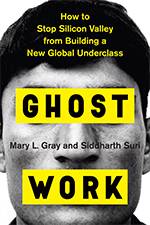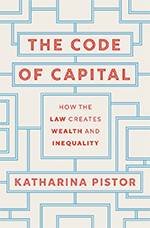Dani Rodrik
Says More…
This week, Project Syndicate catches up with Dani Rodrik, Professor of International Political Economy at Harvard University and author of Straight Talk on Trade: Ideas for a Sane World Economy.
Project Syndicate: You wrote in January that US President Donald Trump’s unilateralism and mercantilism, though bad for the world economy, will have manageable consequences, as long as other countries do not overreact. Six months later, the trade war with China still flares up between half-hearted truces, and Trump is still lashing out against allies and neighbors, recently threatening to impose non-trade tariffs on imports from Mexico. Does your assessment still stand?
Dani Rodrik: I think so. If anything, Trump’s trade antics have reinforced the desire of other countries to cement their trade relationships with one another. A recent case in point is the trade agreement that was signed between the EU and Mercosur (which covers Argentina, Brazil, Uruguay, and Paraguay).
As for Trump, I have long thought that his bark would prove worse than his bite. He makes all of these threats, and then backs away. This recently happened with Mexico. Even with respect to China, against which there is considerable US domestic backing for some trade action, I would not be surprised if he gradually backed down. The bottom line is that other countries should not panic, let alone needlessly shoot themselves in the foot by retaliating.
Rodrik recommends
We ask all our Say More contributors to tell our readers about a few books that have impressed them recently. Here are Rodrik's picks:
-

Cultural Backlash
by Pippa Norris and Ron Inglehart
While I disagree with some of the authors’ contentions, this book offers the most complete and sophisticated argument about the cultural origins of today’s authoritarian populism.
-

Ghost Work
by Mary Gray and Siddharth Suri
This is an excellent recent book. It shows how digital platforms rely on a large number of invisible workers who carry out the “last mile” work for them, but are deprived of the protections we associate with the employment relationship.
-

The Code of Capital
by Katharina Pistor
In this book, Pistor shows how property is not a natural concept, but is based on law. Capital thus depends on the state, and can be reshaped and reconfigured to serve public purpose.
From the PS Archive
From 2017
Two years ago, Rodrik argued that, at a time when strong social protections to compensate the losers of economic openness is no longer a viable strategy, policy elites must change the rules of globalization itself. Read his full commentary Too Late to Compensate Free Trade’s Losers.
From 2015
Nearly four years ago, Rodrik examined the rising tide of criticism of the economics discipline, which has increasingly come not from the fringes, but from the field’s own leaders. Read his full commentary Economists Versus Economics.
Around the web
People in rich countries often react to labor-market shocks by demanding trade protection, with the largest effects observed when unemployment is caused by imports from a poor country. Recognizing this tendency, Rodrik and his co-author argue, has been essential to enabling political campaigns to manipulate policy attitudes. Read the article here.
Not only does international trade have sharp distributional implications; the public often views redistribution caused by trade as more harmful and disruptive than other domestic market shocks. Given this, Rodrik proposes restricting trade to promote domestic inclusion through a “social safeguards clause.” Read the policy brief here.
In a lecture at Brown University, Rodrik explores the historical roots of the current backlash against globalization, predicts how that backlash will evolve, and offers insight into what a better globalization would look like. Watch the video here.
